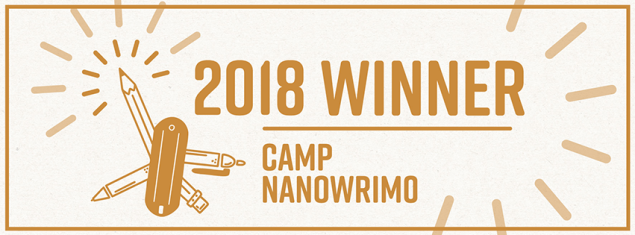Hey all,
In my last post, I talked about recurring themes, how the ideas or subjects that come up in our work again and again can be a great way to process and grow as people and writers, a way to identify our personal voice, and a way to identify and promote our place in the market.
This time, I’d like to come at it from a bit of a different angle and point out some of the downsides of playing the same notes over and over.
The main issue I see is stagnation, both personally and as a writer.
To give a personal example, we’ll take Machine (collective sigh from regular readers). When I wrote Machine, I was processing through a lot of stuff from my middle school and teenaged years (heck, I still was a teenager), which at the time, was healthy.
Except, as I kept editing it over and over again (it took me a long time to learn how), I got stuck in a bit of a personal loop. It wasn’t until I set Machine aside and got some distance that I realized how close those ties were and what was really happening.
But that’s really for a different blog post, of which there are already many.
Which brings me to the second part of stagnation, which is stagnation as a writer.
Something that I’ve seen visual artists do that I really admire is to do a kind of inventory of their characters to make sure they’re drawing different types of people. Basically, they either do a big line-up or line-up of faces of their different characters, and then compare them, looking to see if, for example, they only draw one kind of eyebrow or lip or even race, body type, or height. The point, besides wanting to be more creative and/or diverse in their character designs, is to find where they aren’t pushing themselves as artists, where they are falling back on what they know or are good at.
I think we, as writers or artists of any kind, can and should do the same thing.
For example, one of the recurring themes I listed in my previous post was antagonistic partners. And I do love writing them. A lot. But if that’s the only kind of relationship I focus on, I’m missing out on something, not just as an artist trying to convey the full richness of human experience, but also as a writer trying to grow.
There are other concepts or ideas I lean on frequently besides that too, such as being captured by the enemy or timid male leads. And that’s not to say any of those are bad things, but if I were to stack up the individual pieces of my novels in a line-up, well, a lot of those suspects would start looking eerily similar.
And once you start doing that, well, outside of very few genres, predictability is no friend to the writer.
So what’s the difference between a good recurring theme and a bad one?
Good question.
I’m not entirely sure I can lay out hard and fast rules for it myself yet either, but a few guidelines I would suggest would be:
- Consider whether the idea you are exploring is either new or at least from a new angle. If you are re-hashing something you’ve already done, that’s probably not the best. If you are building on or refining an old one (a la Miller from my last post), that’s better.
- Consider whether your element is a theme you’re building on or a plot device you’re over-using. A twist can be a useful tool. Use it too much though and you start getting groans in the theatre (I’m looking at you, Shyamalan).
- Consider who is being served by your use of this element. With Machine, I was serving and justifying myself by re-hashing the edits over and over. Even if it had been published, the one who would have benefited most was myself. To give a less vague and more fictional example, consider the writer constantly writing themselves into their work as the main character, every person who has ever rejected them being proved wrong at every plot turn. This helps neither the reader nor the author. Recurring themes should help you grow, the fruits of your labor being passed on to those who learn and grow with you as they read. If you’re only hammering the same nail over and over in the same place, you might want to consider finding something new.
I’m sure there are more indications, most of the ones I’m aware of being identified more through instinct than any specific rule. If you’re not sure, try doing an inventory. Look at the repeating elements across your work and ask the above questions. Ask yourself why you are using them. Is it because you know you’re good at biting wit and a Norwegian forest setting? Is it because you write only characters that look or think like you? Because you only like to write in one sub-genre? What do these questions tell you about you or your work and is the result helpful (it could be!) or not? Then ask yourself what, if anything, needs to change. I know for me, there are definitely areas where I could stretch.
I hope to as I continue to grow.
So, what about you? Do you have recurring themes or elements in your work? Have you seen good or bad examples of it in the work of others? What rules or standards do you use to determine if a recurring element is helpful or not? Let me know in the comments below, and if you want more content like this, please follow me here or on social media using the links in the sidebar. Thanks for reading!





